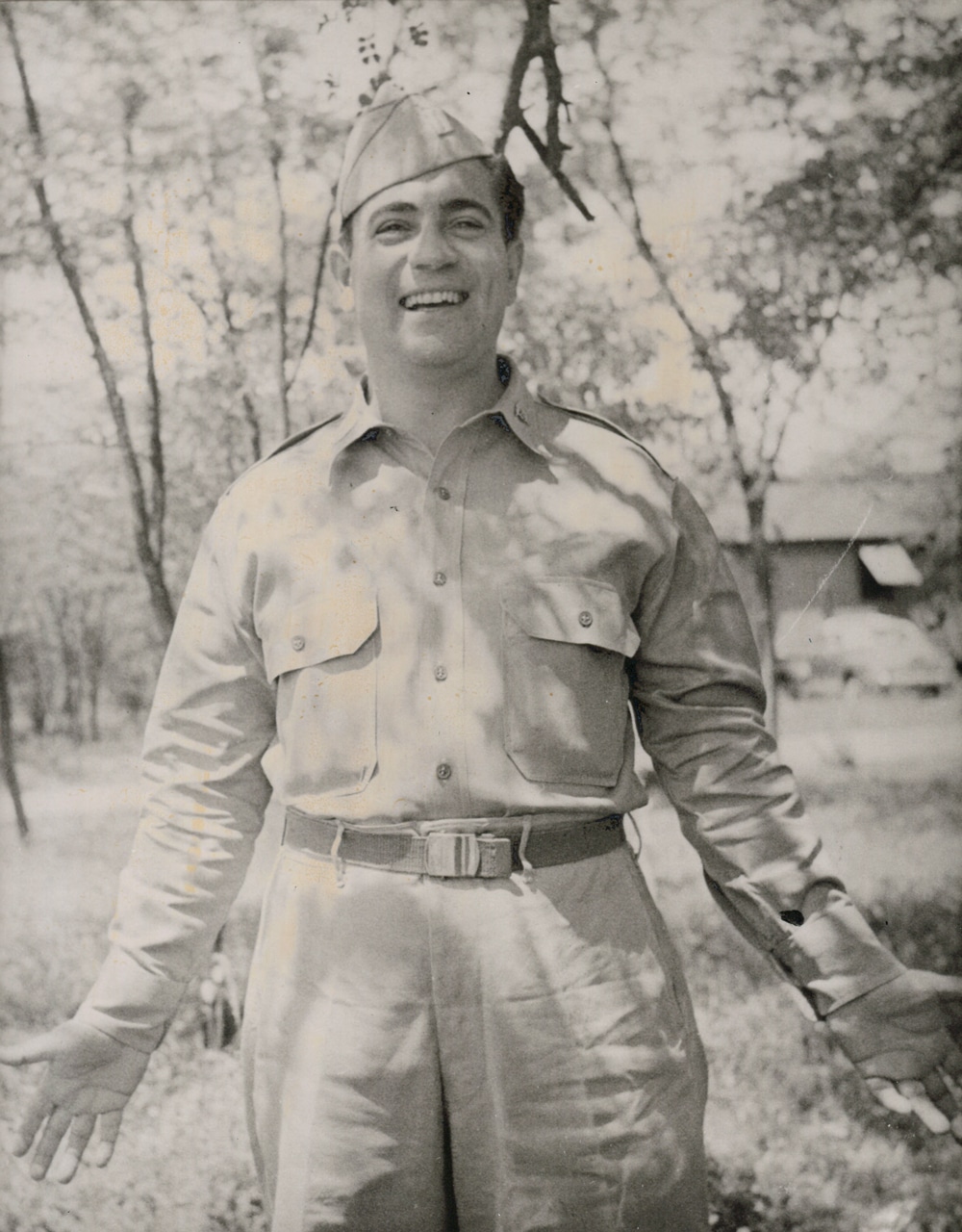The Storage Shed | First Person
What do we do with things that hold special meaning only for us?

Among the “keepers” unearthed from long-forgotten storage boxes: a snapshot of the author’s father, Al, as a beaming young GI.
Photo Credit : courtesy of Mel AllenOf all the legacies I could leave my two sons, the one I never want is to make them confront the sediment of my life. When other members of my family have died, I had to decide what to keep, what to give away, what to drive to some obscure place that took things that no longer fit in a home. I pretended not to know that some of it would likely be crushed in a dumpster. I do not want that burden to be passed on.
I keep things. I am not a “hoarder,” because that implies an aberration. I do not hoard. I keep things that should not be discarded. A friend once told me he gave away his mother’s furniture but kept everything that told a story: a knitted wool hat, a scarf, a miniature porcelain swan boat. I understood.
But so many things hold stories for me. Which is why I have not opened my storage unit for months. I know now that I must trim it all back, put this locker on an austerity program. So I open the lock, lift the door, and enter a chaotic land of boxes. And immediately, I want to retreat. I need someone to take this all away when I am sleeping. Yet all this once meant something to people I cared about; I kept my own boxes, too, of notebooks and newspaper clippings and audio tapes, because they were the tools of my life’s work.
Still, I cannot leave the chaos to be sorted by others. I fill the trunk of my car, the backseat too. Back home I set up plastic crates for paper, and two more for mementos—I label these “keepers.” I place a large container for discards beside a table. I begin.
Inside the first box is a framed photo of my dad in his Army uniform from World War II. He is smiling, arms flung open. My sons never knew him. A keeper. In another box I find a dusty brown leather satchel filled with manila envelopes that have not been opened for decades. One envelope holds letters that my father wrote to my mother during the war. When I leave this earth, nobody will ever ask to see them. I am supposed to be thinning the herd so my sons do not need to. But these, too, go into a keeper crate.

Photo Credit : courtesy of Mel Allen
In another box I see tapes from 40 years ago of Stephen King talking to me about his early life, and tapes on which I had scrawled Alan Shepard. An hour passes, and all I have accomplished is to stack dozens of tapes into a crate, each filled with the voice of someone whose story I wanted to tell.
I discover a handwritten letter from a 9-year-old named Jamie. I once coached her youth baseball team at a time when only a few girls played with the boys. I read: “You have showed me so many things that I never knew I could do. If it weren’t for you I would still be that whimpy scaredy cat I was when we started. But now I’m someone who can go up to the plate and hit, swing hard and not strike out and be upset…. Thank you for getting me to be the ballplayer that I’ve dreamed of being.” She had decorated both sides of the paper with colored stars. How do I put that in the discard pile, even if I have not seen it for over 25 years? Because now I have, again, and it fills me with the same flush of pleasure as when I first read it long ago.
Maybe, one day, I will make peace with the fact that I did my best. That I sifted through all the mementos, keeping only what I could not bear to never see again. Which, as of today, many days into the project, is nearly everything.
This essay was adapted from Mel Allen’s online column “Letter from Dublin,” which will begin appearing in Yankee starting with the September/October issue.
Mel Allen
Mel Allen is the fifth editor of Yankee Magazine since its beginning in 1935. His first byline in Yankee appeared in 1977 and he joined the staff in 1979 as a senior editor. Eventually he became executive editor and in the summer of 2006 became editor. During his career he has edited and written for every section of the magazine, including home, food, and travel, while his pursuit of long form story telling has always been vital to his mission as well. He has raced a sled dog team, crawled into the dens of black bears, fished with the legendary Ted Williams, profiled astronaut Alan Shephard, and stood beneath a battleship before it was launched. He also once helped author Stephen King round up his pigs for market, but that story is for another day. Mel taught fourth grade in Maine for three years and believes that his education as a writer began when he had to hold the attention of 29 children through months of Maine winters. He learned you had to grab their attention and hold it. After 12 years teaching magazine writing at the University of Massachusetts-Amherst, he now teaches in the MFA creative nonfiction program at Bay Path University in Longmeadow, Massachusetts. Like all editors, his greatest joy is finding new talent and bringing their work to light.
More by Mel Allen

